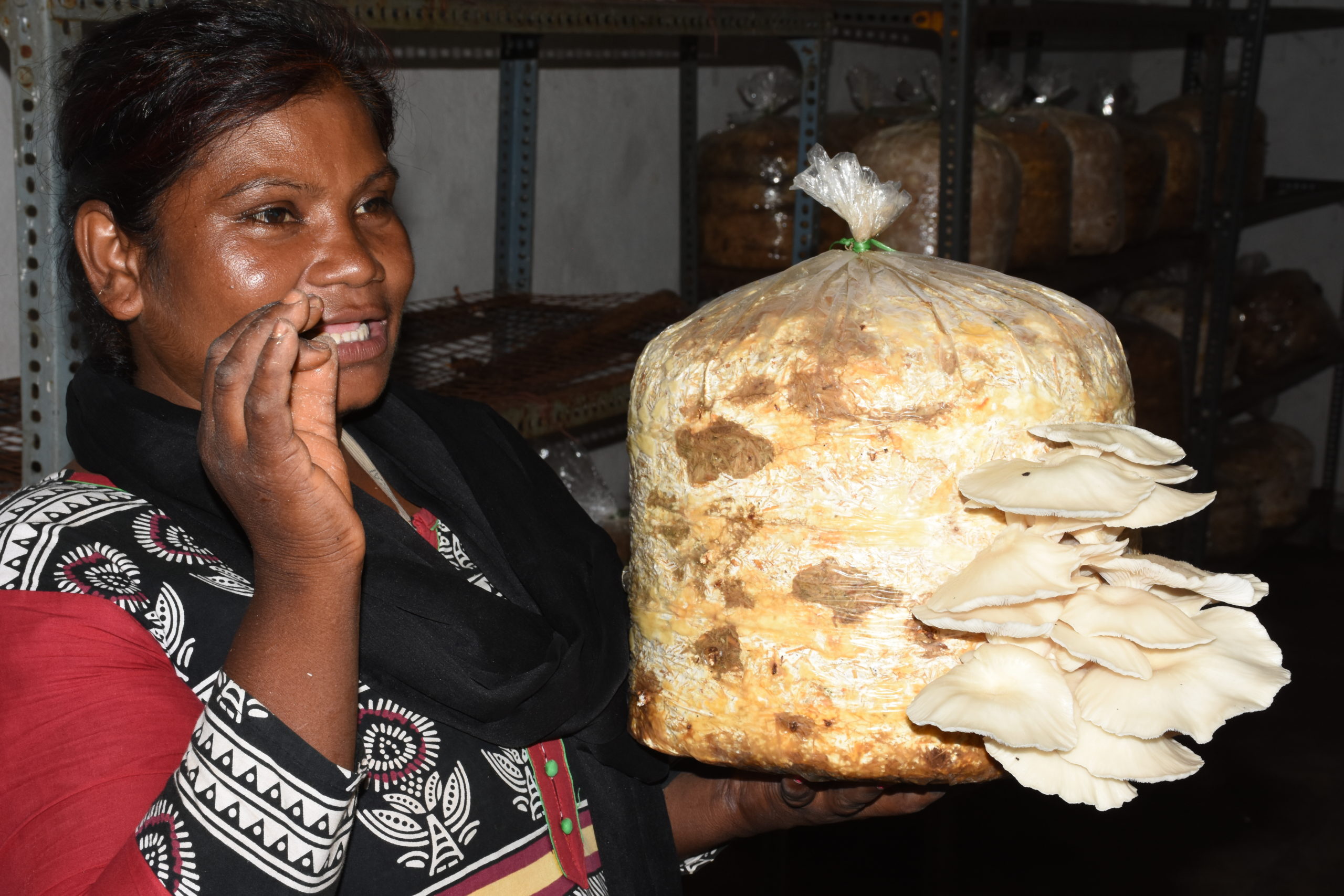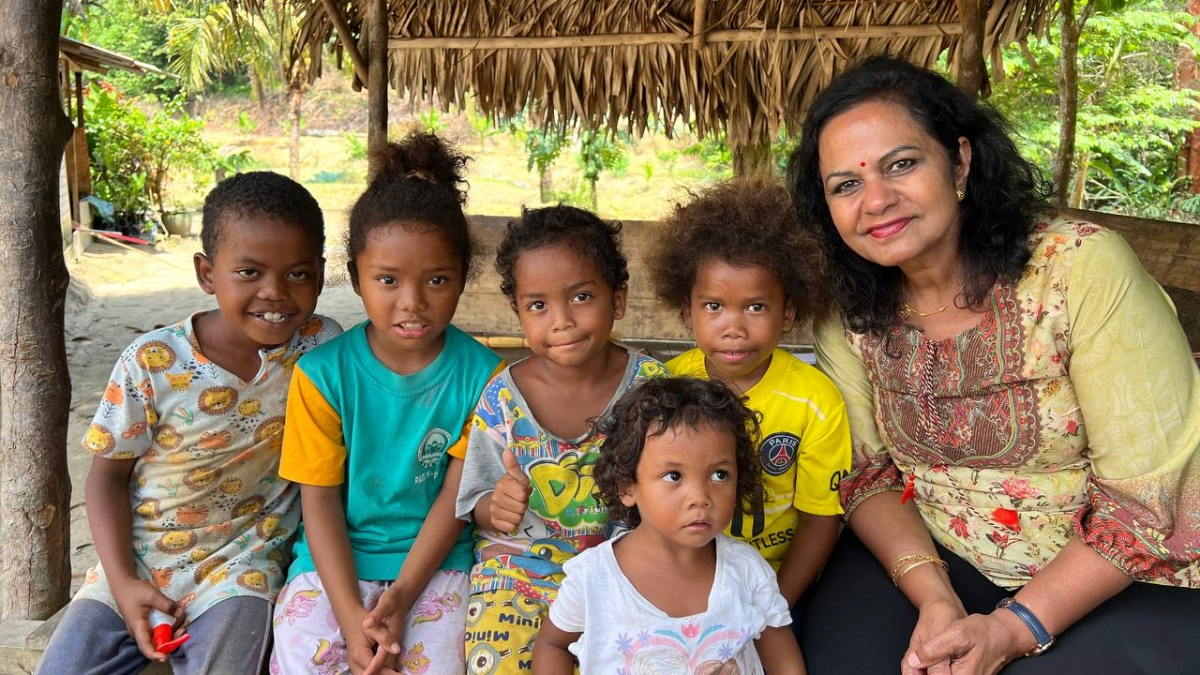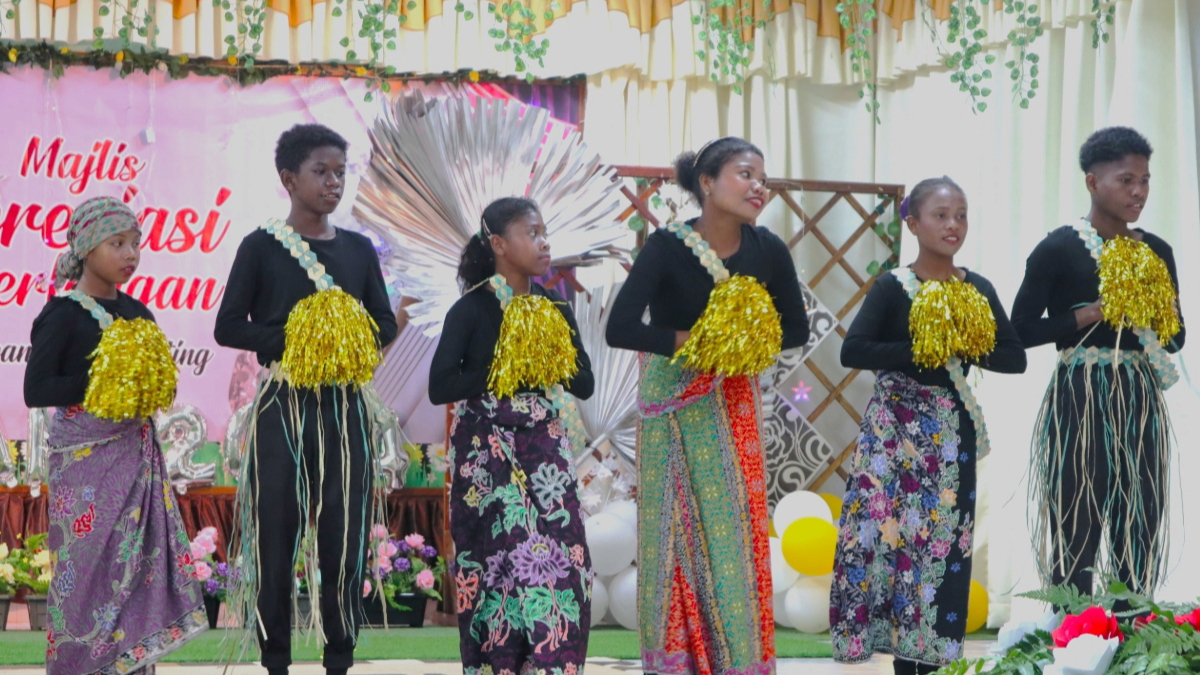Hard work has been part of 39-year-old Munni Keshariyar’s life from an early age. A native of Pandau village in rural Jharkhand in India, she grew up working on farmlands, carrying water from the river for daily chores and working in brick kilns to afford school books and uniforms. However, today, she is known for her expertise in mushroom farming, a respected figure in her community.
As a resource person, she trains local women through a livelihood programme supported by RYTHM Foundation and Parinaama Development Foundation, a non-profit advancing women’s empowerment in India. Munni’s passion and efforts are helping raise the standard of living for Jharkhand women, enabling them to support their families better.
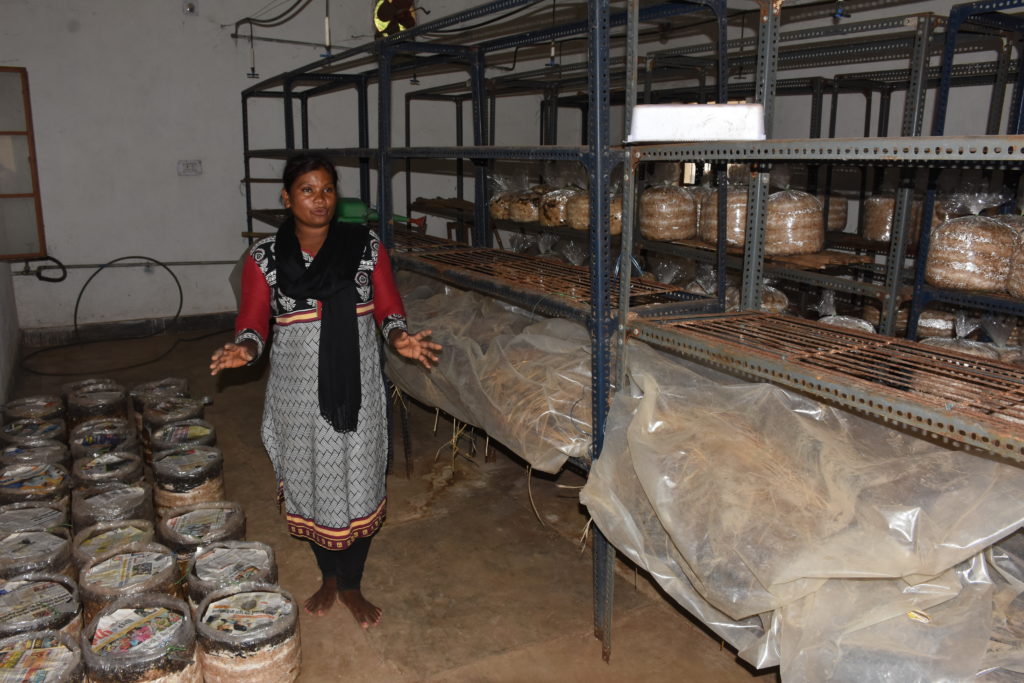
An Advocate for Self and Others
Munni grew up in a household where education was not a priority due to her family’s financial struggles.
“My mother did not like me going to school. She preferred that I work to bring in extra income. She once threw my books in the rainwater and denied me food, but somehow, I persevered and finished schooling,” Munni recalls.
Education awakened Munni’s passion for social change. Fortunately, Munni married into a supportive family that encouraged her to pursue becoming an activist and community organiser.
“I’ve always loved helping others and sought avenues for supporting those in need. I became a human rights activist and began working with the area’s political representatives and brought in many initiatives for community development,” she shares.

Training Jharkhand Women in Mushroom Farming
Munni had been working as a helper on several agricultural and horticultural projects at the Indian Council for Agricultural Research (ICAR) in Ranchi when she crossed paths with the team from Parinaama.
They were visiting ICAR’s mushroom cultivation programme, and seeing Munni’s passion and experience offered her a role to train women in mushroom farming. Munni didn’t hesitate to accept, already active in community work and eager to uplift women.
In 2018, with the support of RYTHM Foundation, Parinaama set up a mushroom plant in Bihar, where Munni took on the role of trainer and coordinator. Over time, her dedication and expertise earned her a promotion to resource person for the entire unit.
The Potential for Mushroom Cultivation
Mushrooms are nutritious, have medicinal qualities, and offer a variety of commercial uses, so it’s no surprise that many rural entrepreneurs turn to mushroom farming for its business potential. It is also relatively low-cost, making it accessible for those with limited resources, like the women of Jharkhand.
“The cultivation of oyster mushrooms does not require heavy expenditure such as building infrastructure, purchase of machinery and equipment, raw materials or labour, yet yields a good amount of fruit,” Munni says.
For women in these rural communities, learning how to grow mushrooms properly offers the potential for a steady income and a path out of poverty. So far, Parinaama’s initiative has helped around 450 women, with 20% of them now independently cultivating mushrooms as a livelihood.
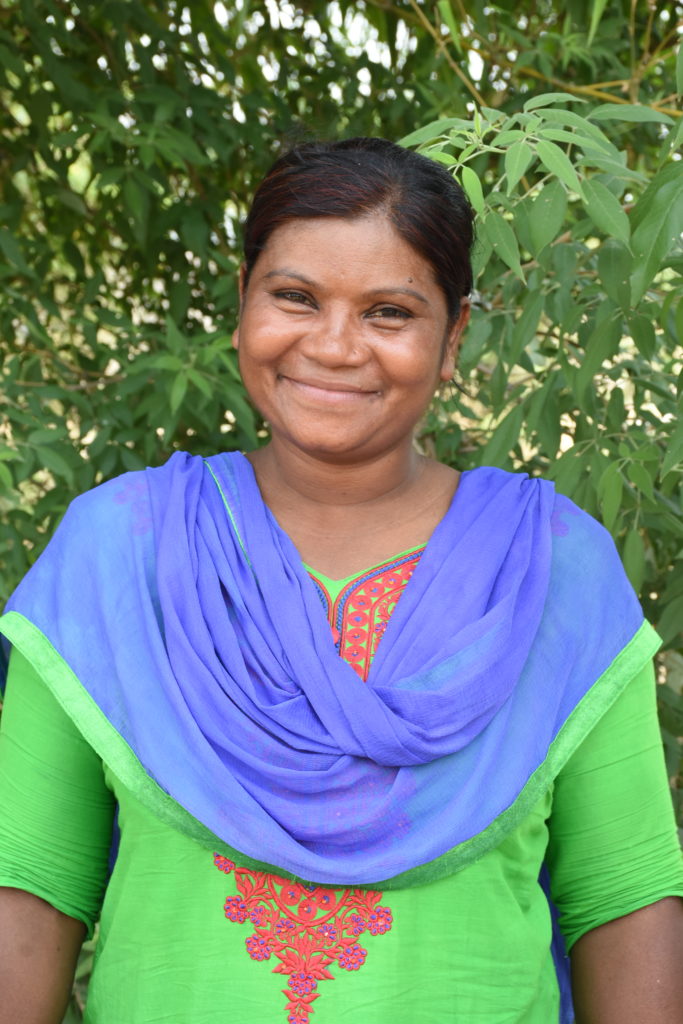
Women’s Empowerment at the Core
This livelihood programme goes beyond teaching agricultural skills—it contributes to the broader conversation on women empowerment in India, especially in rural areas where opportunities are not as accessible.
Reflecting on her journey, Munni adds, “I am very happy and content working on this mushroom farming project. I finally got the platform I sought, helping the poor and the vulnerable groups.”
Munni’s inspiring journey from struggling student to community leader is just one of many where women are at the forefront of social change.
Her story, along with that of the women in Jharkhand, is a powerful reminder that when women are given the right tools and opportunities, they can create lasting change for themselves and their communities.
There are more inspiring women whose sheer determination has improved many lives, and their efforts have transformed more communities. Learn more about them here to fuel your empowerment journey.


